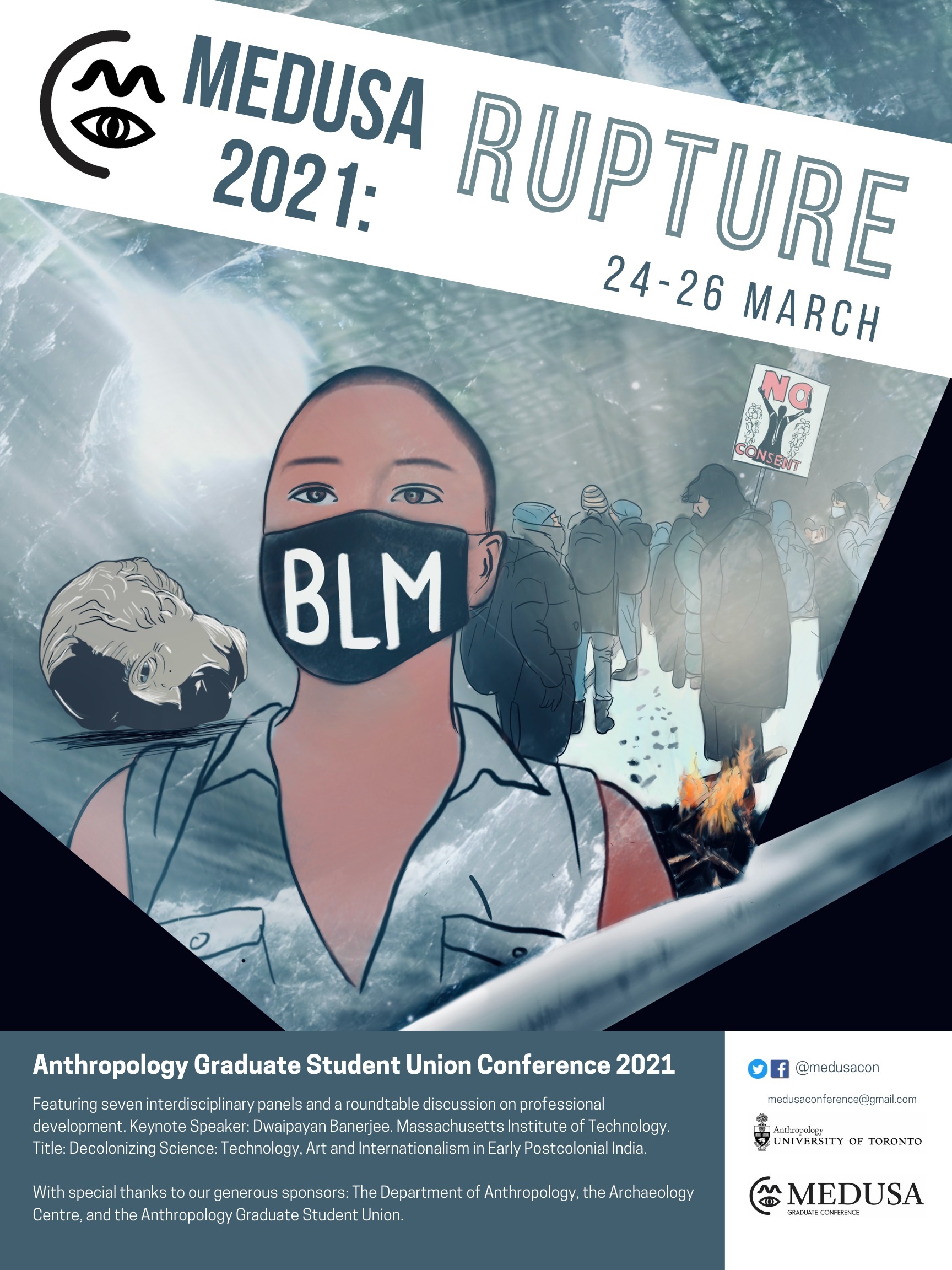Medusa Graduate Conference 2021
When and Where
Description

Visual Description of the poster: A silver pipe is placed diagonally on the bottom left of the poster. A large shard of glass pierces through the pipe. The shard reflects an image of a dark-skinned individual wearing a black mask with the word "BLM" on it standing against a foggy grey background. Behind this person, there is a group of people gathered around a bonfire. One of them is holding up a sign that says, "No Consent." On the left side of the poster, a white, decapitated head of a male statue is rolling on the ground, shadow covering the majority of its face. The MEDUSA logo, with an eye, a snake on top of it, and a half-circle encapsulating the left part of the eye and the snake, is placed on the right top of the poster.
**Open invite to all**
The conference will take place online over three days between the 24th and 26th of March, 2021.
Medusa Graduate Conference 2021 is open for registration. The theme this year is Rupture. The conference features seven interdisciplinary research panels chaired by faculties:
- Revolutionary Futurities
- Disruptions and Connections
- Ruptures in Self and Subjectivity
- State, Care and Mediated Crisis
- Ruptures and Knowledge-Productions
- Technology and the (Re)Ordering of Crisis
- Ruptures & Sensorium
A Professional Development Roundtable
- From Graduate School to Cultural Institutions
Keynote Speaker: Professor Dwaipayan Banerjee MIT
Title: Decolonizing Science: Technology, Art and Internationalism in Early Postcolonial India
Much of the STS scholarship on postcolonial science has critiqued the national techno-politics in the early years of decolonization (Nasser in Egypt, Nkrumah in Ghana, Nehru in India and so on). Several scholars have rightly questioned the techno-utopian nature of these projects and critiqued their commitment to a singular modernization paradigm that failed to account for the particular politics of postcoloniality. In this talk, I argue that the dominance of this critique obscures far more contradictory and exciting energies that emerged from the world of early postcolonial science, energies that claimed modernism but rejected modernization. I do this by enacting a lateral move, shifting our point of view to an Indian artistic modernism born in close relation to and partly because of these same scientific energies. Finally, I offer some reflections on the possibilities of thinking through 20th century scientific and artistic internationalisms as a response to the rise of fascist politics in many parts of the contemporary world.
Click to access the conference agenda and register for individual sessions: https://docs.google.com/document/d/1g8YEkWTD7Dv19SHmEBwG5r3DsTK91pBXo9PB5P0mO1Q/edit?usp=sharing
Reach us below:


